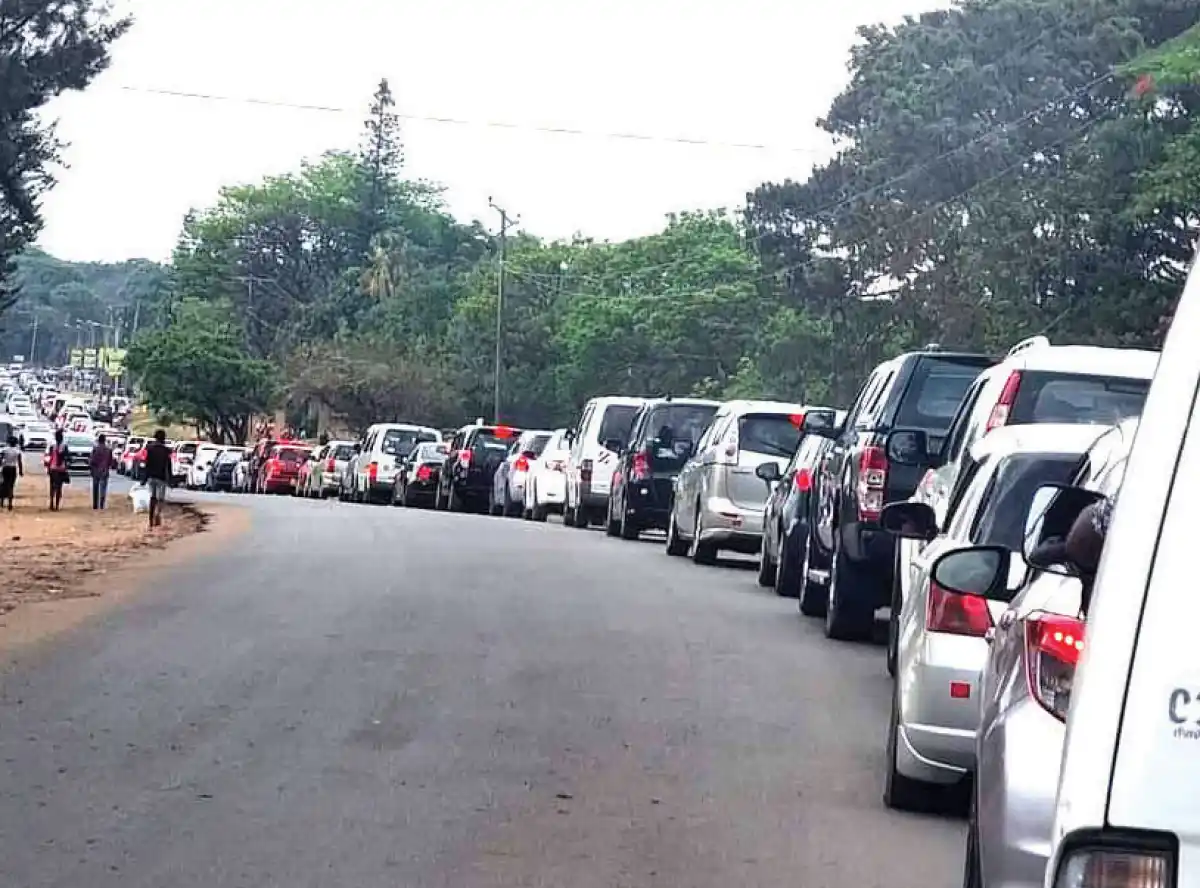
By the time we went to press last night, the fuel supply crisis, which had persisted for close to two weeks, was nowhere near abating in several parts of the country, despite assurances from authorities that supply would improve before the end of Sunday.
Our spot checks in Blantyre and other areas revealed that most fuel stations remained dry, as had been the case for the past two weeks.
Last Wednesday, Minister of Information, Moses Kunkuyu, along with National Oil Company of Malawi Chief Executive Officer (CEO) Clement Kanyama and Malawi Energy Regulatory Authority (Mera) CEO Henry Kachaje told the press that supply would improve by the weekend.
In Blantyre, out of eleven petrol stations we visited, only one had petrol available as of noon yesterday.
At several filling stations, motorists queued in anticipation of fuel deliveries.
“We have heard that a fuel tanker will arrive today and we are here waiting for it. However, we do not know when it will arrive,” Maxwell Manyamba, a minibus driver we found at a Puma Filling Station in Namiwawa, Blantyre, said.
Another motorist, Alex Magwira, expressed concern, saying he would not have enough fuel to return home if deliveries did not occur.
“I will have to sleep here because I do not have fuel to take me back home. There is no hope of finding it anywhere else,” he said.
The situation was forcing desperate motorists to seek fuel from illegal traders.
On the black market, a five-litre jerrycan of petrol was selling for around K35,000, while in normal circumstances, people would pay approximately K13,000 for the same quantity at filling stations.
During the press briefing, Kunkuyu announced that about 150 trucks were in transit, carrying approximately 5.7 million litres of petrol.
“Twenty-nine trucks (1.1 million litres) of petrol have already arrived in Malawi by road,” Kunkuyu said.
He added that they were expecting 144 trucks carrying 5.5 million litres of petrol, which were being loaded in Beira, Mozambique, and Dar es Salaam, Tanzania.
The minister attributed the problem to foreign exchange challenges and unsettled bills, which had apparently led suppliers to suspend fuel deliveries to Malawi for ten days.
According to Kunkuyu, the country requires around $51 million for fuel each month.
“There are immediate measures being implemented to restore normalcy. For instance, the Malawi foreign exchange authorities have allocated $21.5 million to fuel importers to pay suppliers and authorise fuel loadings,” he explained.
Sunday, Kunkuyu did not respond to our calls or WhatsApp messages regarding the government’s reaction to the prolonged fuel crisis.
Mera spokesperson Fitina Khonje and Nocma’s Raymond Likambale requested more time before commenting.

The fuel crisis gained attention last month when Consumers Association of Malawi Executive Director John Kapito suggested adjusting petroleum prices upwards to address importation challenges.
Kachaje acknowledged that the country’s fuel prices are too low, which he said is affecting their operations.
He said Mera owes fuel importers about K785 billion, a debt accumulated by the continued sale of fuel at lower prices.
The Parliamentary Committee on Climate Change and Natural Resources, in its report presented to Parliament, agreed with the suggestion to adjust fuel prices.
However, some opposition parliamentarians walked out in protest, claiming that a price hike would increase the cost of commodities, severely impacting Malawians.
Kunkuyu recently admitted in an interview on Times Radio’s Kulinji programme that the actions of opposition legislators led to inaction from authorities regarding the issue.
“Following the parliamentarians’ actions, the government was forced to devise alternative ways to ensure that fuel remains available at an affordable price.
“The recommendation for a fuel price hike is still being treated with the utmost seriousness. We still owe the importers significant amounts of money, and they cannot begin supplying the commodity if we do not pay them,” Kunkuyu said.




0 Comments